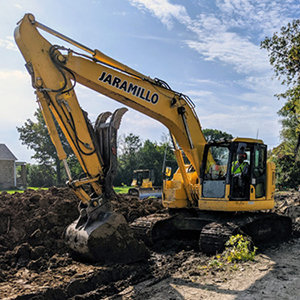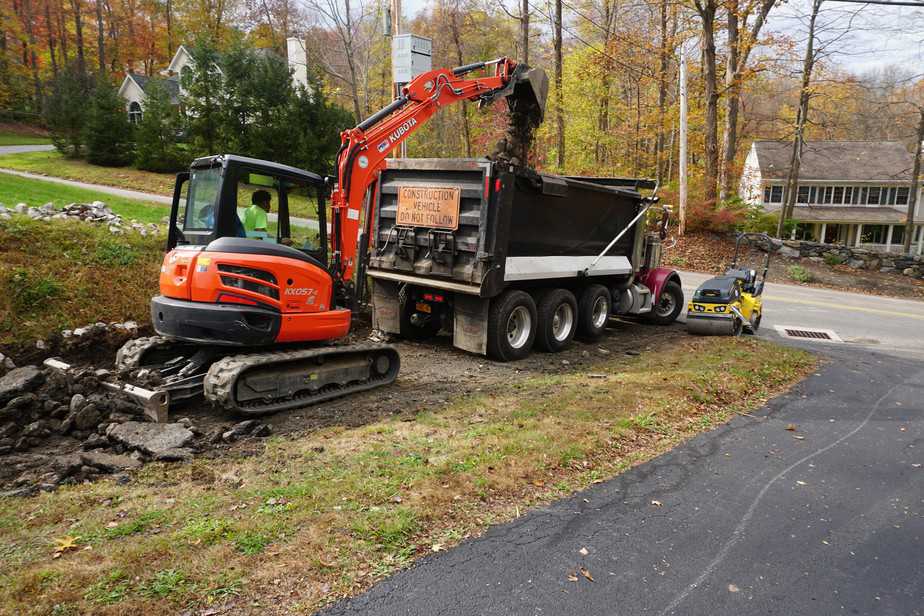Residential Excavating Ohio - Specialized Excavation for Ohio Houses
Residential Excavating Ohio - Specialized Excavation for Ohio Houses
Blog Article
Comprehensive Excavation Strategies: Mastering the Basics for Success
In the realm of building and civil design, the importance of reliable excavation strategies can not be overemphasized. The mindful planning, exact execution, and careful focus to detail called for in excavation tasks demand a detailed strategy that encompasses different basic aspects. From initial dirt analysis to the application of precaution and routine progression surveillance, mastering these core components is vital for attaining success in any excavation undertaking. The true mastery lies not simply in comprehending these basics however in perfectly integrating them to navigate the complexities of excavation projects with finesse.
Understanding Excavation Task Preparation

Effective excavation jobs are improved the structure of extensive and meticulous planning. The first phase of any kind of excavation job is the planning stage, where crucial decisions are made that can dramatically affect the outcome of the task. During this stage, it is vital to gather all pertinent information regarding the website, including topographical studies, soil structure, and any kind of potential dangers that might exist. Understanding the project timeline, scope, and budget plan restrictions is critical for creating a detailed excavation strategy that ensures the project's success.
One key aspect of excavation project planning is the growth of a detailed timeline that outlines the sequence of deadlines, milestones, and tasks. This timeline works as a roadmap for the job team, enabling them to track progress and make necessary changes to make sure the job remains on schedule. In addition, a well-defined budget that makes up all expenditures, including equipment service, labor expenses, and materials, is important for avoiding price overruns and hold-ups. By thoroughly considering all these variables throughout the drawing board, excavation projects can be performed efficiently and efficiently, resulting in successful end results.
Dirt Analysis and Site Examination
Conducting thorough soil analysis and website analysis is an important action in the preparation phase of any type of excavation project. Soil evaluation entails determining the structure, framework, and residential or commercial properties of the soil at the excavation website. This details is crucial for comprehending the soil's bearing capability, dampness web content, and potential for erosion, which are key elements in figuring out the excavation approaches and tools required for the task.
Website evaluation surpasses soil evaluation and incorporates a more comprehensive analysis of the total website problems. This analysis consists of recognizing any kind of prospective risks, such as underground utilities, environmental concerns, or unstable surface, that can influence the excavation procedure. By completely examining the site, project managers can create reliable excavation approaches that focus on security, effectiveness, and environmental protection.
Making use of innovative innovations like ground-penetrating radar, soil sampling, and drone studies can improve the accuracy and efficiency of dirt evaluation and website examination. Investing time and sources in these initial steps can eventually conserve time and protect against pricey hold-ups or issues throughout the excavation procedure.
Equipment Option and Application
Reliable excavation projects rely greatly on critical devices selection and application to make sure optimal efficiency and efficiency. Selecting the appropriate devices for the job is crucial in optimizing efficiency and decreasing downtime. Aspects such as the type of dirt, depth of excavation, and task range play a substantial function in determining one of the most suitable tools for the task at hand.

Along with selecting the ideal equipment, proper application is key to job success. Operators must be trained to handle the tools securely and successfully - dump truck companies in ohio. Normal upkeep checks and prompt repair services aid stop malfunctions and make sure constant performance throughout the project
Precaution and Regulations Conformity
In the world of excavation jobs, prioritizing precaution and conformity with guidelines is vital to making sure a safe and lawfully sound operational setting. Precaution encompass a variety of techniques, including conducting comprehensive website analyses, executing proper signs and obstacles, and supplying adequate security training for all personnel associated with the excavation procedure. Adherence to regulations, such as OSHA needs in the United States, ensures that the excavation job meets the essential requirements to protect employees, bystanders, and the surrounding setting.

Monitoring Development and Adjusting Techniques
How can forecast supervisors efficiently track the innovation of excavation projects and adjust their strategies appropriately to optimize results? Surveillance progress is crucial for guaranteeing that excavation tasks stay on track and satisfy deadlines.

Verdict
Finally, grasping the fundamentals of comprehensive excavation methods is vital for the success of any task. By comprehending project preparation, evaluating dirt and site conditions, choosing suitable tools, following safety laws, and keeping an eye on progress, task managers can make sure a reliable and smooth excavation process. Applying these strategies will certainly lead to effective end results and reduce possible dangers or troubles during the excavation task.
The preliminary stage of any excavation job is the planning phase, where crucial choices are made that can dramatically affect the result of the project. Recognizing the project timeline, budget plan, and range constraints is vital for developing a thorough excavation strategy that makes sure the project's success.
How can predict managers efficiently track the innovation of excavation projects and adapt their techniques appropriately to enhance end results? By very closely monitoring progress and being prepared to adapt techniques, job managers can improve the general success of excavation jobs.
By comprehending job preparation, assessing dirt and site problems, picking suitable devices, complying with security site policies, and checking development, task supervisors can guarantee a effective and smooth excavation procedure.
Report this page